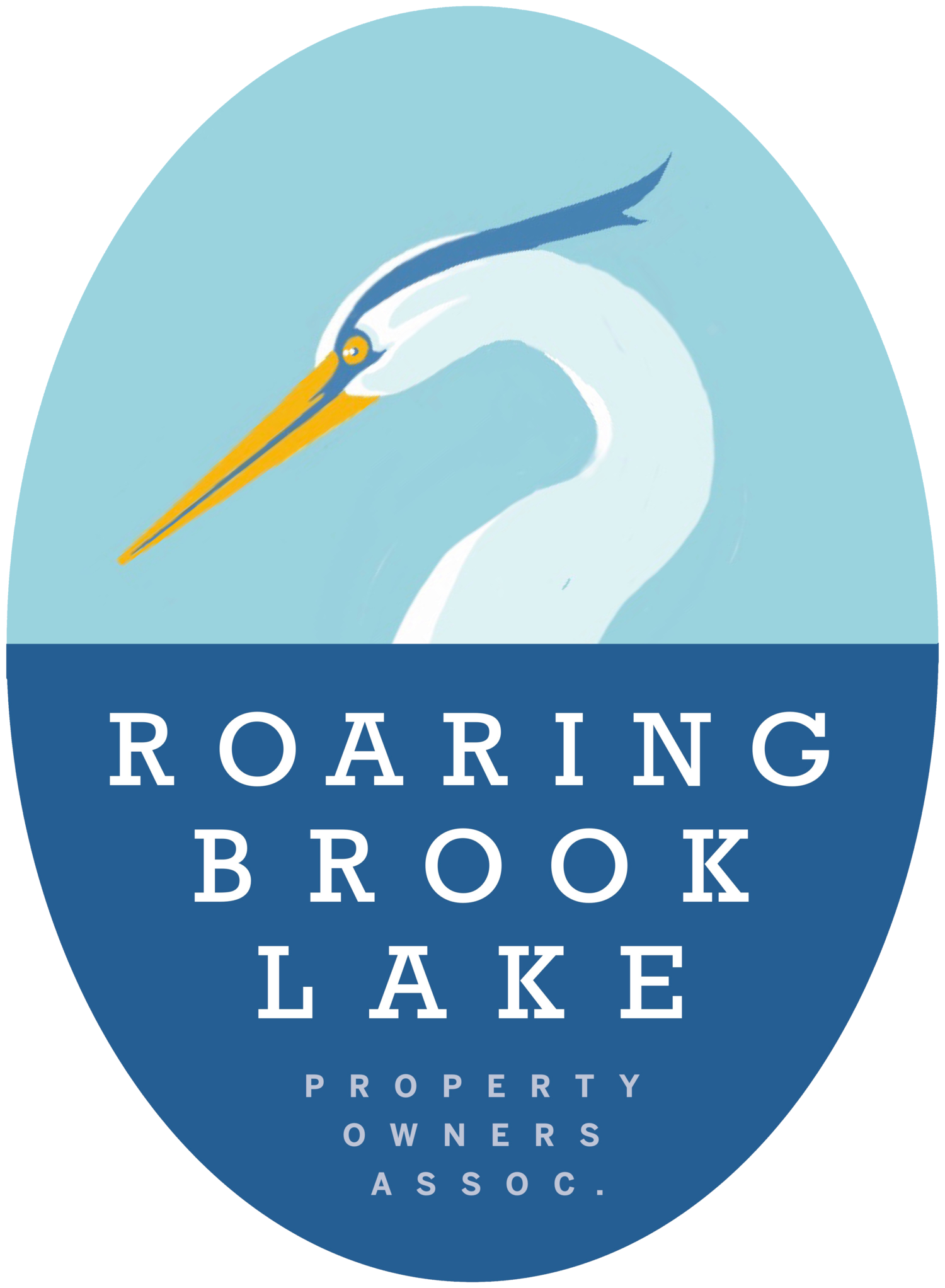Reduce runoff
What is stormwater?
Stormwater is water from rain or melting snow that doesn't soak into the ground but runs off into waterways. It flows from rooftops, over paved areas and bare soil, and through sloped lawns while picking up a variety of materials on its way.
What's the Problem?
As it flows, stormwater runoff collects and transports pollutants, including nutrient pollutants, to the lake. Although the amount of pollutants from a single residence may seem unimportant, the combined concentrations of contaminants threatens our lake and wetlands. Pollutants carried by stormwater can make our lake unsafe for wading, swimming, boating and fishing.
Examples of Pollution in Stormwater
Nutrients such as phosphorus and nitrogen can promote the overgrowth of algae, deplete oxygen in the lake, cause overgrowth of aquatic plants, and be harmful to other aquatic life.
Bacteria from animal wastes and ageing or failing septic systems can make the lake unsafe for wading, swimming and fishing.
Oil and grease from automobiles causes sheen and odor and makes transfer of oxygen difficult for aquatic organisms.
Sediment from construction activities clouds waterways and interferes with the habitat of living things that depend upon those waters.
Careless application of pesticides, herbicides, and fertilizers affect the health of living organisms and cause ecosystem imbalances.
Litter damages aquatic life, introduces chemical pollution, and diminishes the beauty of the lake.
What can you do to help? A lot…
Maintain your car or truck. Never dump anything down a storm drain. Always recycle used oil, antifreeze and other fluids. Fix oil leaks in your vehicles.
Wash your car at a commercial car wash rather than in the street or in your driveway. If you wash your car at home, wash it on your lawn.
Drive less. Leave your car at home at least one day each week. Combine errands when you drive. Get vehicle emissions checked and repaired. Buy a low emission vehicle.
Cut down on fertilizers, pesticides and herbicides. If you use these chemicals, follow directions and use them sparingly. Don't fertilize before a rainstorm. Be aware that organic fertilizers, aged manure, and even compost may be good for your plant, but are all sources of nutrient pollutants for the lake. Let your lawn go golden brown in the summer months; it will rebound in the fall. Compost or mulch lawn clippings. Preserve existing trees or plant new ones – trees hold rainfall and help manage stormwater.
Replace lawn along the waterfront. Plant a buffer zone of deep rooted grasses, shrubs, or natural vegetation at the shoreline.
Maintain your septic system. Septic systems require regular inspections, maintenance and pumping, or they will fail, cost a lot of money to fix and could pollute the lake or streams leading to the lake. Have a professional inspector check your system and have it pumped out regularly.
Pick up after your pets and geese. Scoop your dog's poop and properly dispose of it. Do the same for goose poop.
Reduce impervious surfaces at home and increase the vegetated land cover of your property. Impervious surfaces include your roof, driveway, patios and even lawn. Reduce rooftop runoff by directing your downspouts to vegetated areas or rain gardens, and not to the storm drain on your street. For your driveway and patios, consider putting in permeable paving, gravel, or patterns of cement and brick that allow water to filter through.

